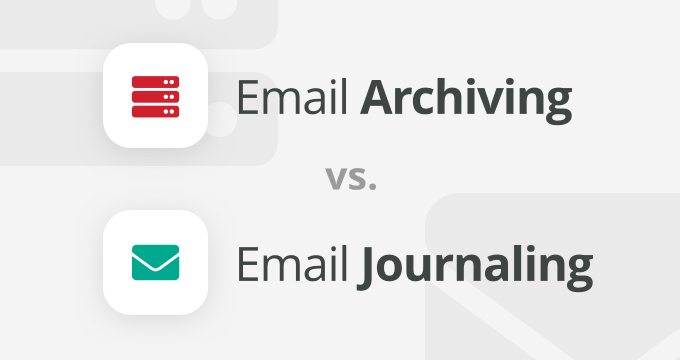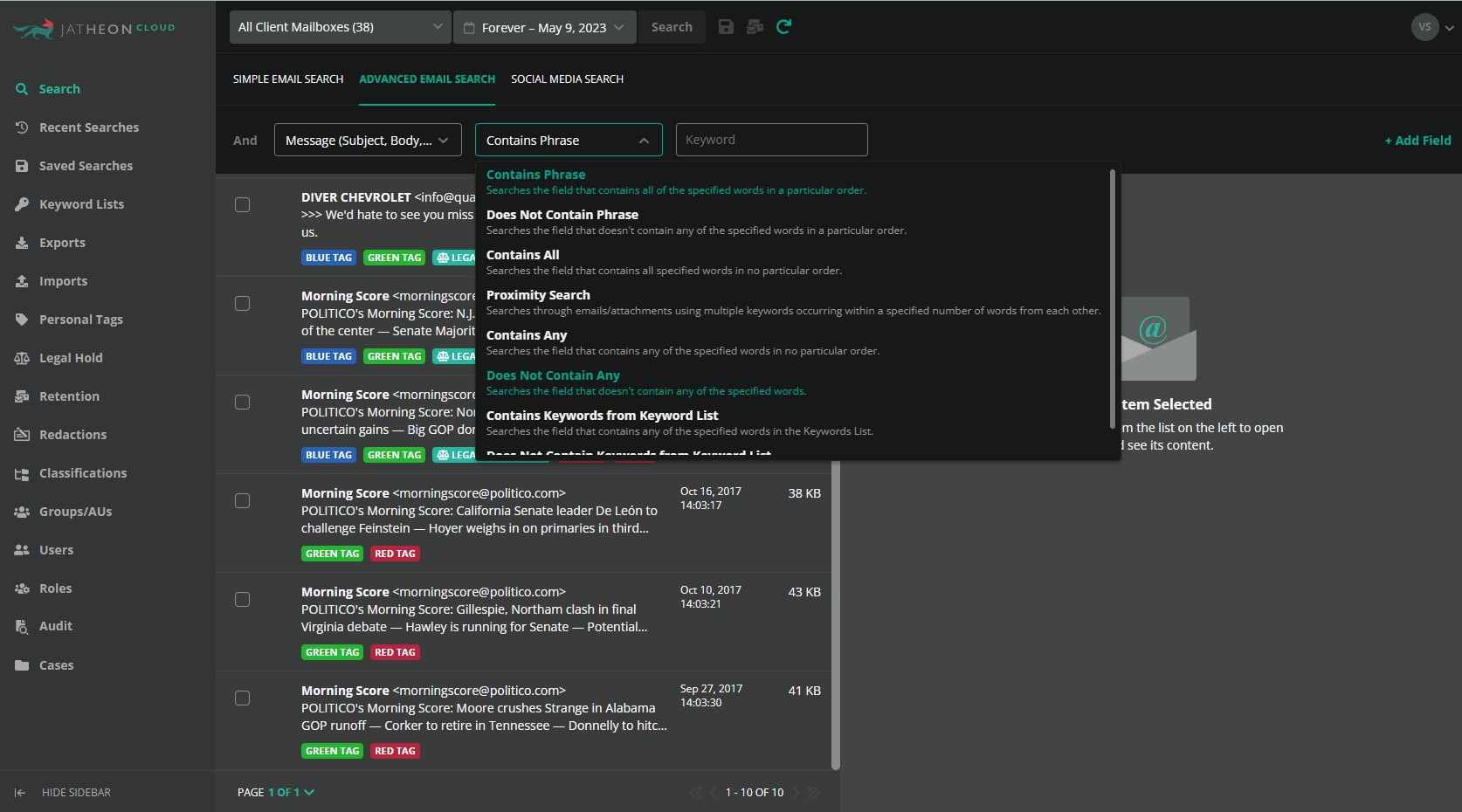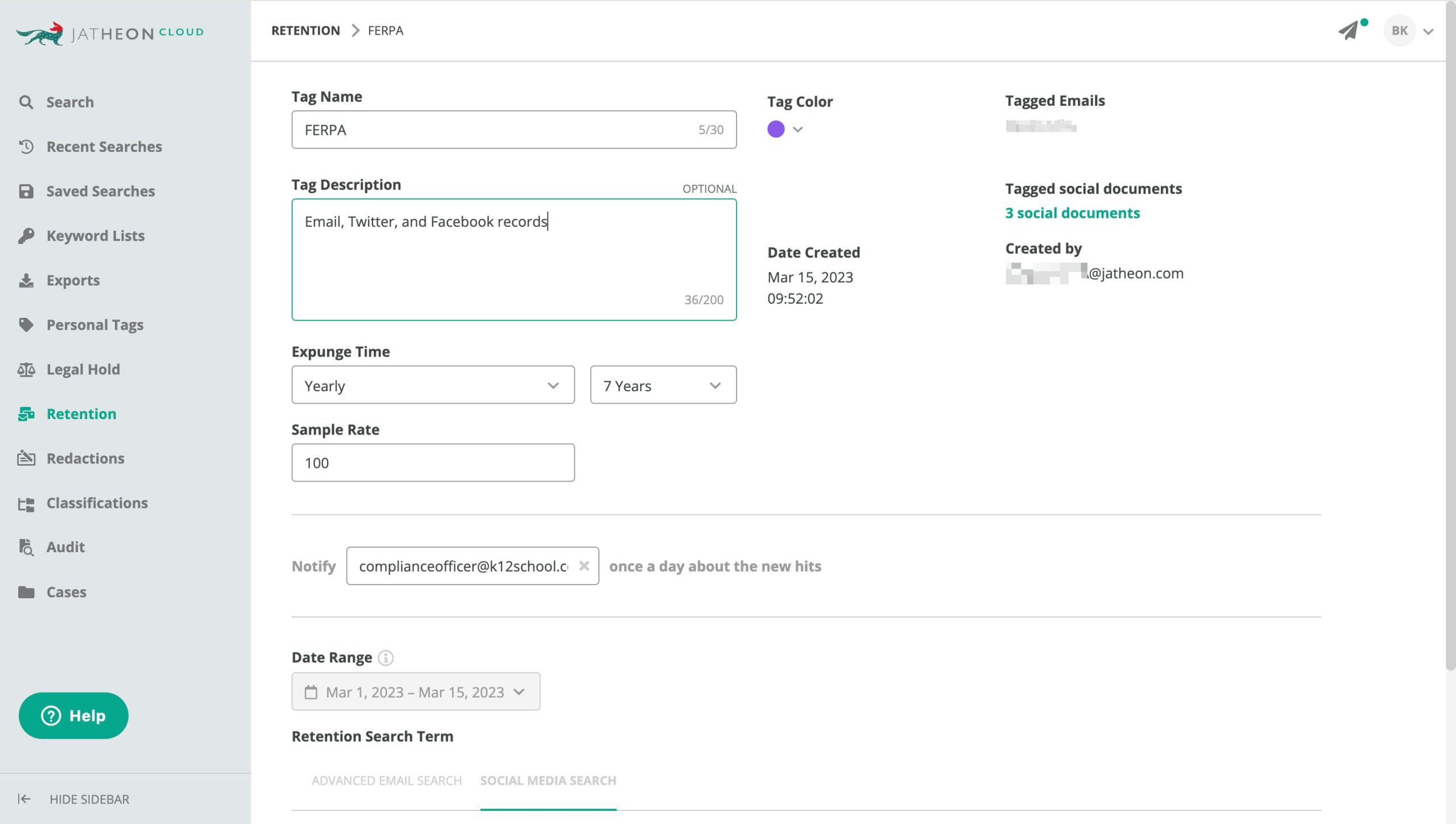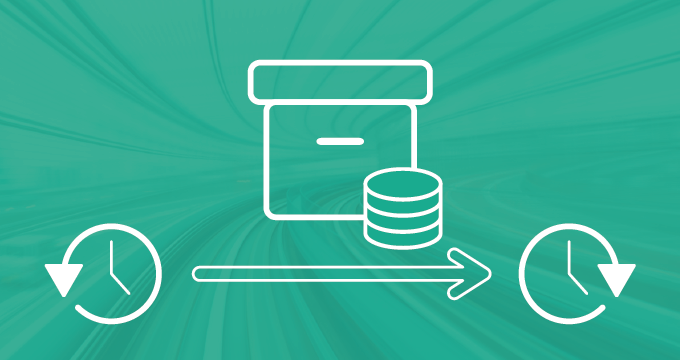There are two processes many get confused about, email journaling vs archiving and how they work.
Knowing the difference between them is critical to making the right decisions.
In this article, we’ll help you understand:
- Key email journaling vs. archiving differences.
- Email journaling and archiving similarities.
- How they affect your compliance strategy.
- Which one is right for your organization.
Understanding Different Email Retention Processes
When it comes to email storage, retention, and risk management, the two most widely used processes are email archiving and journaling.
They both allow you to store email communication records for prolonged periods, but there are differences between them.
What is email archiving?
Email archiving is the process of copying electronic communication records with all of their metadata as a means of complying with data retention laws.
Archived records are stored in a secure archive away from your main email server by transferring just one copy of the email immediately after it has been sent or received.
This enables your business to gather, protect, and store massive volumes of email in a centralized location, where it can be quickly searched for ediscovery or audited to verify corporate compliance.
What is email journaling?
Email journaling is the process of creating shadow copies of all message traffic by recording all communications as per the organization’s email retention policy.
Every copy created is stored in a separate inbox on your email server which can’t be altered unless given appropriate access.
This makes it a good tool for simple retention regulations since organizations must keep records of conversations to fulfill regulatory and compliance requirements.
Email Journaling vs Archiving Differences
To formulate an effective compliance strategy, it’s important to understand the difference between these two processes and their functionalities.
The two main differences between archiving and journaling are in their purpose and how they store data.
Email journaling focuses on quickly capturing all incoming and outgoing communications for adequate legal support, while email archiving focuses on effective communication record management.
Journaling is very effective at this because of the speed at which it captures email, even before it hits the regular user inbox, and the fast retrieval.
But this speed of email retrieval is only fast if you are using email journaling as it should be used, which takes us to the way these two processes store data.
Email journaling stores all your email records in a separate inbox on your email server while email archiving stores it on a separate server.
This means that email archiving doesn’t take up any space on your primary email server, unlike journaling.
How Journaling and Archiving Affect Compliance
If you’re in any regulated industry then you’re familiar with the strict retention requirements when it comes to email data.
Some of the most important legislations include:
- The General Data Protection Regulation (GDPR)
- Sarbanes-Oxley Act (SOX)
- FINRA / Securities Exchange Commission (SEC) Rule 17a-4
- Gramm-Leach-Bliley Act (GLBA)
- Health Insurance Portability and Accountability Act (HIPAA)
- California Consumer Privacy Act (CCPA)
They all require you to either retain or produce communication records, which wouldn’t be possible without archiving and journaling.
Both archiving and journaling can capture and store your email communications.
They are both also capable of performing extensive email searches, which is very important when it comes to open data record requests or in potential lawsuits.
Basically, both processes are indispensable in keeping your organization compliant.
But when you take in all the differences and similarities between journaling and archiving, which one should you choose?
The answer is email archiving for many reasons.
Why Email Archiving Is the Right Choice
In the past, email archiving was only meant to store your communications records and nothing more, that’s why you needed a journaling solution to go along with it.
But in recent years, many email archiving solutions have evolved and incorporated the best of both worlds becoming the only solution you need for compliance.
One of the biggest issues of email journaling was always the approach to data storage. Journaling stores both emails and their shadow copies on your email server.
The data copied in an email journaling solution will continue to accumulate until the journal inbox is full. When this happens, most solutions are intended to save the data in PST files, which are accessible and corruptible by outside sources.
This accumulation of double the content takes a huge toll on your email server, pair this up with the need to store emails for at least 5 years and your server will grind to a halt.
Email archiving solves this problem by storing all email data on a separate cloud server, preventing double emails and allowing you to delete older emails from your server.
Newer archiving solutions are also equipped with advanced email search capabilities which was the primary reason to opt for a journaling solution, but nowadays, solutions like Jatheon come with:
- Boolean search — Combine keywords with AND, OR, and NOT operators.
- Wildcard and proximity operators — Search the archive with partial terms.
- Fuzzy searches — Accommodate your search for spelling errors.
- Keyword search — Look for specific terms with a dataset.
Along with this, archives allow you to create custom retention policies that automate how long emails need to be retained and delete them after the period expires but also give you options to put them on legal hold in case of a legal dispute.
All in all, there’s almost no reason to go for an email journaling system when email archiving does the same job with more advanced options.
Email Journaling vs. Archiving: The Verdict
In theory, you can’t have archiving without journaling. They’re similar and both are needed for email compliance.
When choosing the right option for your organization, try to understand what you need, just a way to store emails for shorter periods and focus on legal ediscovery or a way to archive them for long periods of time.
In our opinion, email archiving sets itself apart as the solution you should implement for full compliance:
- You’ll offload the data from your email server (meaning, no compromised performance)
- Email archiving preserves the data in a way that cannot be manipulated or destroyed, in accordance with the restrictions of your organization’s retention policy.
- Email archiving can minimize storage expenses, server load, and the associated expenditure for email backups.
Solve all of your email compliance needs with Jatheon’s cloud email archiving solution built for businesses of all sizes. Stay compliant, speed up your ediscovery, and retain all of your business data in one easy-to-use solution.
Read Next:The Importance of Email Archiving – 18 Reasons to Archive Email Microsoft Exchange Journaling – Everything You Need to Know Top 5 Email Archiving Software Features (for 2024 and beyond) |













